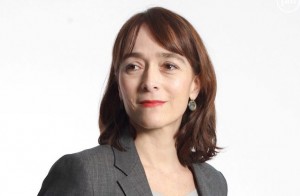
After more than 40 years of operation, DTVE is closing its doors and our website will no longer be updated daily. Thank you for all of your support.
French SVOD project Salto ‘will work’, says Ernotte
Salto, France’s planned joint Netflix rival to be created by public broadcaster France Télévisions and commercial broadcasters TF1 and M6, “will work” and needs to involve a pay strategy for archive content, according to France Télévisions director-general Delphine Ernotte.

Delphine Ernotte
Speaking to financial daily Les Echos, Ernotte said no-one had believed the country’s broadcasters would strike a deal to create a platform, but that this has now happened.
Ernotte said that France Télévisions was proud to be the first public broadcaster to build a partnership with commercial players to build a non-linear platform.
She said that a real effort was underway to build something that could provide an alternative platform to Netflix to derive revenue from the broadcasters’ archive of content.
Ernotte said that extended non-linear rights for all episodes “cost money”. Broadcasters financed French content that subsequently found its way to Netflix and it therefore made sense for those broadcasters to realise the revenues on their own platform, even if the rights it retained were non-exclusive.
While Netflix “puts lots of money on the table”, she said, France Télévisions was working to develop European co-prodcutios with other broad asters to enable them to mutualise their efforts.
Ernotte said she still had a “dream of a [pan-] European public platform” that would enable participants to monetise their content and also retain a crucial relationship with their own audience.
Ernotte’s comments followed the French government reducing the budget for public service media by €190 between now and 2022 and ordering savings of €160 million from France Télévisions, while Radio France will have to find savings of €20 million.
The cost-cutting programme and reform of public service broadcasting in the country will see a revamp of regional service France 3, the disappearance of youth-focused France 4 and the disappearance of France Ô, aimed at citizens of overseas territories, from the terrestrial airwaves.
Public broadcast organisations will at the same time have to invest €150 million from their reduced budget in new digital platforms
Ernotte also told Les Echos that plans to generate savings while investing in new digital platforms would involve a “substantial” effort. She said realising the plan was “realistic” but would be “difficult”.
Copyright collecting society SACD condemned the planned cuts, saying that they “reinforced the fears of a reform solely focused on recucting costs, a retrenchment of the perimeter of public service media – two channels axed – and a rushed and unprepared launch of digital platforms”.


